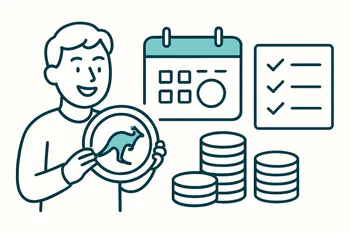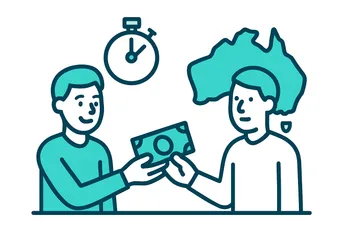Navigating Car Loans: A Guide for Sunshine Coast Residents
- Personal Finance
- 04 Mins read


Introduction
Buying a car is a significant decision. For residents of the Sunshine Coast, understanding car loans can help you navigate the financing process smoothly. This guide unpacks the essentials of car loans, from what they entail to how to secure the best deal.
What is a Car Loan?
A car loan is money borrowed to purchase a vehicle. You agree to pay this money back over time, usually with interest—a fee charged by the lender for borrowing the money. Car loans can be secured, which means your vehicle serves as collateral, or unsecured, meaning no asset backs the loan.
Why Consider a Car Loan?
Most people don't have the cash to buy a car outright. A car loan can make purchasing more feasible by allowing you to spread the cost over several months or years. It can also help build your credit score if managed correctly.
Types of Car Loans Available
1. Secured Car Loans
Secured loans typically offer lower interest rates because the car acts as collateral. If you fail to keep up with repayments, the lender can repossess the vehicle. This option is popular for first-time buyers as it can work out cheaper in the long run.
2. Unsecured Car Loans
With unsecured loans, you don’t have to put any collateral down. However, this often means a higher interest rate. The lender may consider your income and credit history more closely to assess risk.
3. Chattel Mortgages
Chattel mortgages are commonly used for business purposes. This option allows businesses to purchase a vehicle while claiming tax deductions and can benefit some residents looking to take advantage of tax breaks.
4. Personal Loans
These loans can be used for various purposes, including buying a car. Personal loans can either be secured or unsecured. It’s vital to weigh the interest rates against dedicated car loans to ensure you’re making a sound choice.
Key Factors to Consider
Interest Rates
Interest rates vary widely between lenders. As of now, the average rate for a secured car loan in Australia is around 6-8% according to the Australian Competition and Consumer Commission (ACCC). For unsecured loans, you might see rates closer to 10-12%.
Example Scenario
If you borrow $30,000 at a 7% interest rate over five years, your monthly payments could be around $600. On the other hand, a 10% rate would mean about $640 monthly. Always compare rates before committing.
Loan Terms
Loan terms generally range from 1 to 7 years. Shorter terms come with higher monthly payments but cost less in interest overall. Conversely, a longer term means lower payments but more interest paid over time.
Your Credit Score
Your credit score affects not only your ability to get a loan but also the interest rate you're offered. A higher score suggests you’re a less risky borrower. Before applying, check your score through services like Experian or Equifax; a score of 700 or more is often considered good.
Tips for Securing the Best Car Loan
Shop Around: Don't settle for the first offer you receive. Compare rates from banks, credit unions, and online lenders.
Get Pre-Approved: This will give you a clearer understanding of how much you can borrow and the interest rates you might expect.
Consider Your Budget: Factor in all costs of ownership beyond the loan, such as insurance, fuel, maintenance, and registration fees.
Negotiate: There's often room for negotiation on interest rates or loan terms. Don’t be afraid to ask.
A Personal Insight
In my ten years as a mortgage broker, I’ve seen many clients focus solely on the car price. Remember, the true cost includes your financing. Getting a competitive interest rate can save you thousands over the loan's life.
Understanding Fees Associated with Car Loans
When applying for a car loan, be aware of potential fees. These may include:
- Application Fees: Sometimes charged by lenders to process your loan application.
- Establishment Fees: A one-off fee to set up the loan.
- Early Repayment Fees: If you pay off the loan before the term ends, some lenders might charge this fee.
Always ask for a complete breakdown of fees to avoid surprises.
Frequently Asked Questions
1. What’s a good interest rate for a car loan?
As mentioned, a competitive rate typically ranges between 6% and 12%. Regularly check market trends and negotiate with lenders.
2. Can I refinance my car loan later?
Yes, refinancing is possible. If interest rates drop or your credit improves, consider refinancing to reduce your payments or pay off your car faster.
3. What happens if I can’t make my payments?
Communicate with your lender as soon as possible. They may offer assistance, but failing to make payments can damage your credit score and lead to repossession.
Conclusion
Navigating the world of car loans doesn't have to be daunting. Armed with the right information and a clear understanding of your financial situation, you can secure a deal that suits your needs. Whether you opt for a secured loan, unsecured loan, or even consider financing options like chattel mortgages, take the time to explore your choices.
Happy driving!



